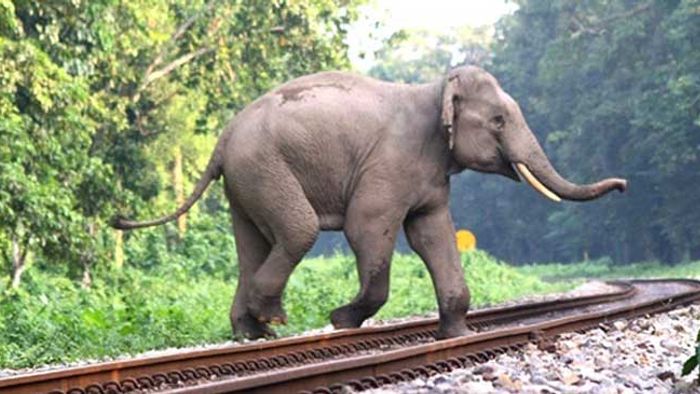Conservation Measures for the Ramsar Site 'Deepor Beel' Yet to be Implemented

- Jul 16, 2019,
- Updated Jul 16, 2019, 1:43 AM IST
Guwahati, July 14, 2019:
Although the Deepor Beel has been declared as a Ramsar Site, the proposed conservation measures are yet to be implemented at the site.
Many measures were initially suggested to ensure that the 'Deepor Beel' is protected, but to no avail. Firstly, the halting of trains should be avoided within the boundary of 'Deepor Beel'. Also, the land and adjacent to the railway line should be kept free from any encroachment.
Since noise pollution is also a major issue, to keep the noise level down, suitable plantations should be raised on either side of the line, and any form of settlement should not be allowed within the low-lying parts of Deepor beel even if private owned lands are available;
The further destruction of adjacent hilly forest should not be allowed (destroyed during construction of railway line) and eco-restoration should be initiated immediately.
Moreover, Saikia and Bhattacharjee (1987) have proposed that the entire 'Beel' be notified as a bird sanctuary.
Moreover, it was suggested that the effectiveness of the Deepor Beel system as a storm water detention basin for Guwahati city should be preserved and the increasing pressure of storm runoff from the city to the 'Beel' should be lessened through creation of additional storage capacity in the naturally depressed areas within the greater metropolitan area.
Considering the urgency for solution of the water logging problem of the city, the use of the 'Deepor Beel' system as a storm water reservoir should receive high priority and other uses of the beel system should be so planned as to be compatible with this overriding objective and it was also suggested that the city runoff which includes sewage should be treated before being discharged into the Deepor beel system.
It as also suggested that more area should be covered under Bird sanctuary which includes highland within it, and other small naturally depressed areas also should be included and proper plantation programme should be initiated to create breeding ground of residential waterfowl.
Land cutting, brick making factory and industrial development should be stopped within and in the surrounding areas of Deepor beel, it was suggested, and all forms of government settlements should be stopped immediately and the area should be preserved as a natural state.
The development of bird related ecotourism for the benefit of local habitants and for conservation education was also one of the measures that was to be undertaken.
It is to be mentioned that thought such measure were being listed in the conservational measures, no steps have been taken to conserve the Beel so far. Moreover, a double-track railway is to be built through the 'Beel', which is likely to pose great threat to the animals of the 'Beel'.
Inside Northeast’s Campaign #LetsSaveDeeporBeel is now supported by Oil India Limited (OIL). Join us as we continue the awareness campaign to preserve the only Ramsar site in Assam which is facing immense threats (A Ramsar site is a wetland site designated to be of international importance under the Ramsar Convention). We need your help to preserve this site of great ecological importance. Join the #LetsSaveDeeporBeel campaign and tweet about it, and do tag us on Twitter. Let’s make some noise!
Download:
The Inside Northeast app HERE for News, Views and Reviews from Northeast India.
Do keep following us for news on-the-go. We deliver the Northeast.